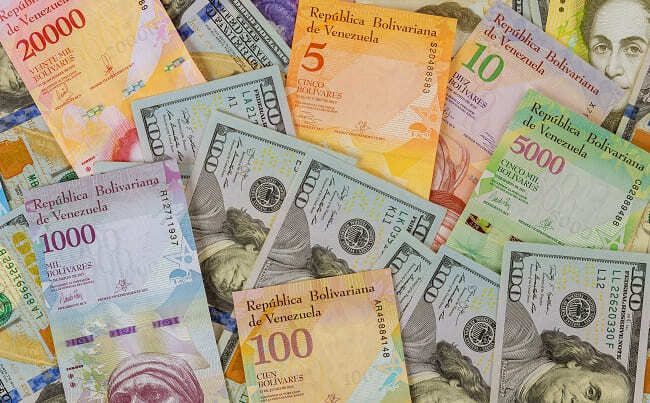
 Data Structure
Data Structure Networking
Networking RDBMS
RDBMS Operating System
Operating System Java
Java MS Excel
MS Excel iOS
iOS HTML
HTML CSS
CSS Android
Android Python
Python C Programming
C Programming C++
C++ C#
C# MongoDB
MongoDB MySQL
MySQL Javascript
Javascript PHP
PHPPhysics
Chemistry
Biology
Mathematics
English
Economics
Psychology
Social Studies
Fashion Studies
Legal Studies
- Selected Reading
- UPSC IAS Exams Notes
- Developer's Best Practices
- Questions and Answers
- Effective Resume Writing
- HR Interview Questions
- Computer Glossary
- Who is Who
What is the full form of FCCB?
Introduction
Foreign Currency Convertible Bond (FCCB) is a kind of bond that an organization issues in a currency other than its own. At a predetermined conversion price, the bond may be changed into the issuer's home currency or shares of stock of the issuer.

Companies frequently employ FCCBs as a means of obtaining funding from foreign investors. Investors may find them appealing since they provide the potential for both income from the bond's coupon payments as well as capital growth should the issuer's home currency improve in value compared to the currency in which the FCCB is issued.
In contrast to conventional bonds, FCCBs do come with some extra hazards, like the potential for fluctuations in foreign exchange rates and the danger of dissolution if the debt is transformed into equity.
Features of FCCB
An FCCB is a bond that, like other bonds, pays periodical principal and coupon payments up to a predetermined date before it can be transformed into equity.
The qualities of convertible bonds are all still there in FCCBs, making them appealing to investors and sellers both.
The fact that FCCBs are stock-linked debt securities that provide the holder the option to convert the bond into stock or deposit receipt (DR) after a predetermined amount of time is another appealing aspect of these securities.
FCCBs can be traded on the stock market.
FCCBs show up on the liabilities side of the corporation issuing them's balance sheet, exactly as any other liabilities-raising instrument would.
Companies that want to raise funds from foreign investors frequently issue FCCBs. They may be issued on the secondary market or the primary market (straight from the issuing corporation).
Advantages of FCCB
Companies can obtain capital outside of their native nation by issuing FCCBs, opening up fresh markets for possibilities for investment.
Companies typically issue FCCBs in the currencies of nations where interest rates are typically lower than those in the country of residence or where the economy as a whole is more stable than that of the country of residence.
Holders of FCCBs may decide to convert their bonds into stock to profit from potential equity price growth.
Holders of FCCBs benefit from the security of guaranteed bond payments and have the option to keep holding the bond in the absence of a more advantageous conversion to equity or depository receipt.
The coupon payments on these bonds are typically less than those of a straight coupon-bearing simple vanilla bond because these bonds offer a benefit to the bondholder. As a result, the issuer's borrowing costs are lower.
Changes in exchange rates that benefit the issuer might further lower the cost of borrowed capital.
The price at which FCCBs are typically converted into equity is predetermined at the point of issuance. Because it is typically at a premium, there is less reduction for the company.
Disadvantages of FCCB
Companies who borrow money through the FCCB must repay the loan in foreign currency when the bond matures. The exchange rate in effect on the day of borrowing may cause losses for the corporation if it has changed significantly from the rate in effect on that day. In a volatile situation, the exchange rate can make payback cash outflows far higher than the savings in the interest rate. Therefore, if the home currency declines more than the interest rate savings, a cost-saving motive might be completely lost.

Let's say the stock prices decline rather than rise. The money might need to be paid by the company issuing it at bond maturity, and the bondholders might choose not to convert their bonds to equity in that scenario. As a result, if the business is going through a hard patch, the stocks might not perform well and, as a result, holders of FCCB would not be able to convert them to equity. In such a case, the already struggling company might also have to pay interest and principal repayments to the bonds. As a result, an FCCB may be appropriateduring bull market conditions and may be impacted during negative market periods.
The legal, political in nature, and economic dangers of that foreign nation may always be there when issuing bonds in another currency in a foreign market. In comparison to those in a foreign country, one may have a much better understanding of the macroeconomic situation in their own country.
The debt-to-equity ratio, as well as additional debt and interest payment coverage ratios, are all negatively impacted by FCCBs because they continue to exist on the books of accounts as a loan until they are converted
Conclusion
The popularity of a foreign currency convertible bond these days is mainly due to the widening gap in interest rates across the world's economies and the laxer rules governing this method of capital raising. The FCCBs may be issued in conjunction with either call options, if the bond issuer retains the right to redeem the bonds, or put options, The bond's coupons could be zero or typically lesser amounts. Additionally, depending on the coupon offered, the bonds may be given at a premium or a discount. Given this flexibility and cost-saving benefits, the volume of foreign currency- transformed bond issuance has increased significantly as more buyers try to take advantage of this option.
FAQs
Q1. What exactly is a convertible bond?
Ans: A product that combines debt and equity is known as a convertible bond. Regular coupon and principal payments are made just like with a bond, but these bonds also allow the bondholder the opportunity to convert the bond into stock.
Q2. How do People operate the mobile banking app for FCCB?
Ans: The FCCB Mobile Banking app lets you check your accounts, pay bills, transfer money, and find our branches and ATMs. Our app is quick, secure, and cost-free. It's so simple to log in—just use your current FCCB internet banking ID and password
Q3. Why did international buyers purchase FCCBs?
Ans: Foreign investors purchased FCCBs because, in addition to receiving a fixed interest rate, they had the option of converting those bonds into shares at a fixed price, which would net them a rapid profit. Since it was believed that the stock price would increase, conversion prices were typically set above current market prices.

